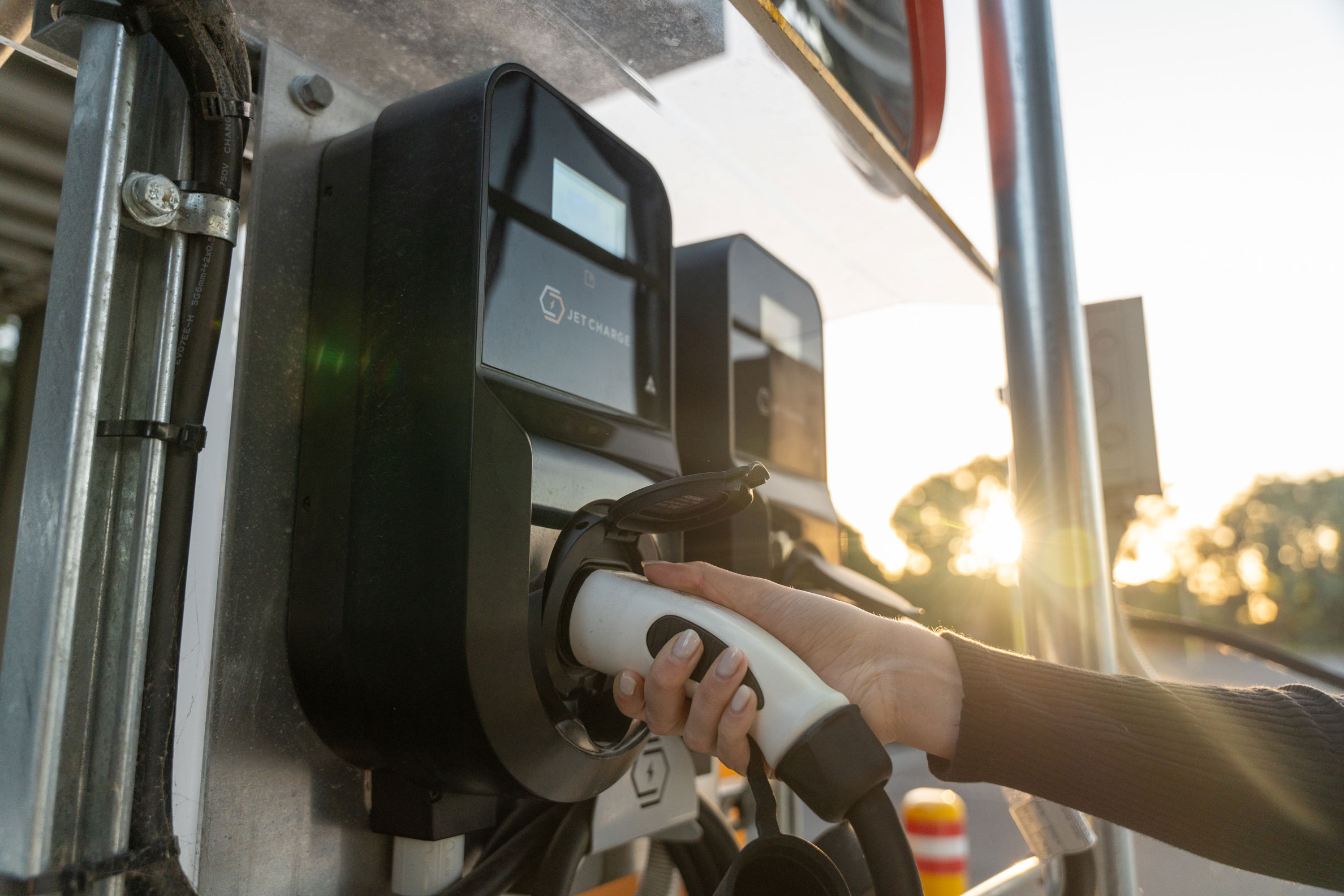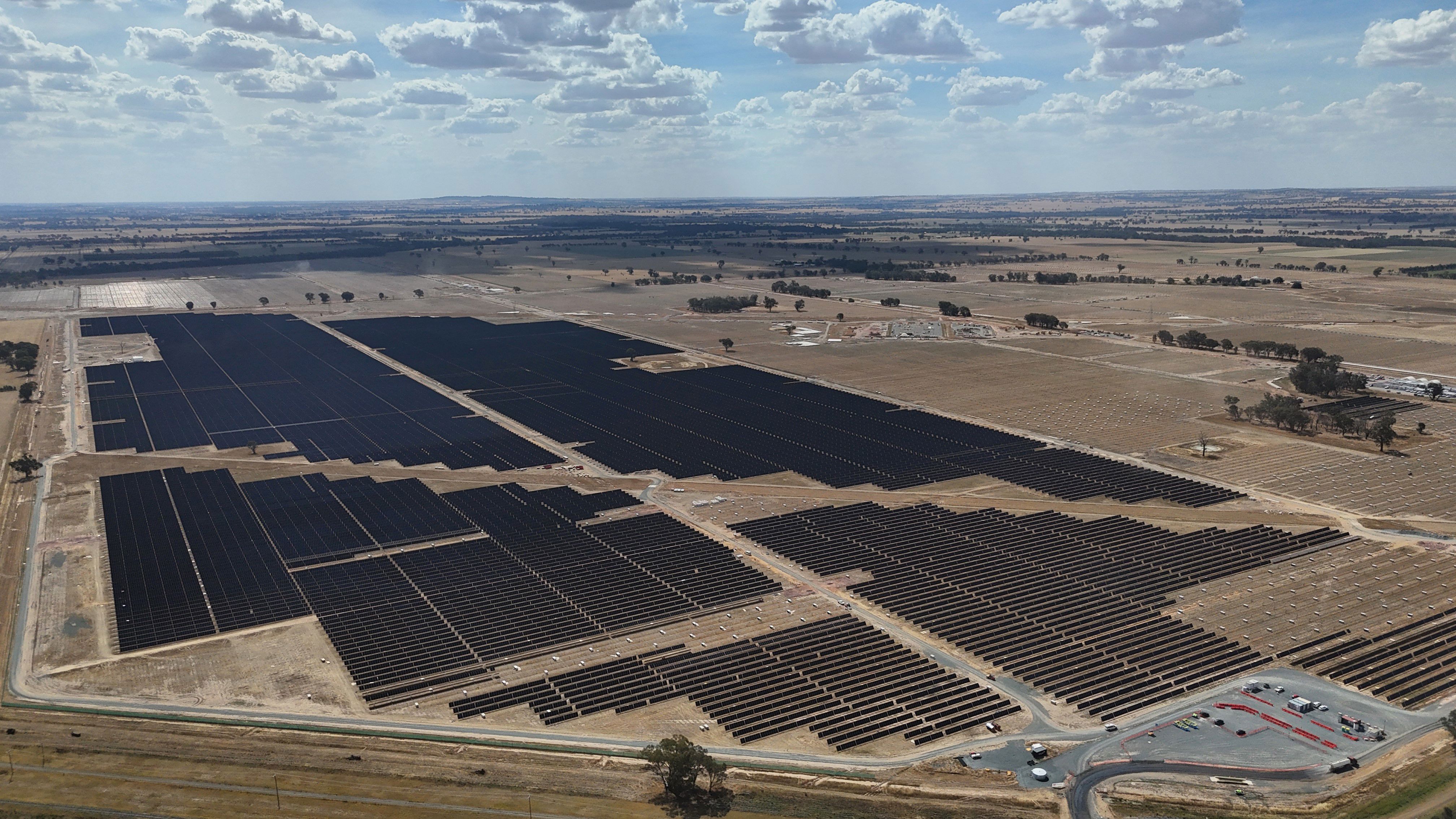CEFC and CBA cut cost of EVs for essential workers and Australians on lower incomes

19 December 2024
The CEFC is helping make electric vehicles (EV) and charging infrastructure accessible to essential workers and Australians on lower incomes with a $150 million commitment to support the Commonwealth Bank of Australia (CBA) EV Access Program.
The CEFC commitment will support eligible CBA customers who work in key sectors or who earn less than $100,000 per annum.
Customers could save between 1.0 per cent and 5.0 per cent for EV specific loans compared to a secured internal combustion engine vehicle loan under CBA’s EV Access Program. For example, on a loan of $40,000, a five per cent interest rate discount over seven years could save customers more than $8,000 in interest.
The CEFC finance will support a discounted rate that will apply to a range of new and used EVs valued up to $55,000, as well as EV home charging infrastructure.
The loan aims to support CBA customers earning less than $100,000 a year, as well as police, teachers, fire fighters, health care, and other essential workers.
CEFC CEO Ian Learmonth said: “The latest research shows that one in three Australians is considering buying an EV in the next five years, but price remains a key barrier1. Discounted finance can lower these barriers and increase access and availability to low emissions transport for more Australians.
“Our work with the CBA will reduce the upfront costs for EVs and expand low emissions vehicle ownership to more people who might have otherwise been locked out of the market.”
CBA customers can access a dedicated car buying platform to help them find, finance and manage their next new or used car purchase via the CommBank app or online.
CBA has worked with a range of EV manufacturers aligned with expanding EV availability and choice in Australia, as well as sourcing discounted public and home EV charging solutions and discounted insurance options for eligible customers.
CBA General Manager Personal Lending Joel Larsen said: “CommBank is bringing new solutions to market that can help customers switch to electric vehicles and lower the cost barriers to doing so. Where public transport isn’t an option, EVs provide a great lower emissions option for essential workers to get to their shifts, sometimes at odd hours, or to ferry kids to school and activities.
“Many Australians are open to buying an EV2 but are put off by the upfront cost. Our new EV Access Program is designed to provide customers with special offers on vehicles and a discounted interest rate for the life of the loan. With new cheaper models coming onto the market and a growing second-hand market, it’s a good time to consider an EV.
“To help customers get a good deal on an EV, CommBank has worked with some car manufacturers to develop a set of special offers which are available through the newly launched Buy and Own a Car service, accessible via the CommBank app,” Mr Larsen said.
“Essential workers in cities like Melbourne and Sydney are more likely to commute by car and less likely to use public transport, compared to the general workforce, partly because of shift work that requires them to travel outside peak public transport schedules³. Helping them purchase an EV improves transport accessibility for these workers and may reduce their carbon footprint.Richard LovellCEFC Executive Director and Head of Debt Markets
“Increasing access to EVs and smart charging infrastructure is a critical investment in decarbonising the transport sector. Transport is the third largest source of greenhouse gas emissions in Australia4, at 21 per cent5 and is on track to be our largest emitting sector by 20306, pointing to the critical need to ramp up uptake of more efficient forms of power generation and transportation.
“Encouraging consumer demand and awareness for EVs through targeted discount finance can also help develop the EV second-hand market, which can further increase the affordability and accessibility of EVs.”
The CEFC investment aligns with the National Electric Vehicle Strategy to increase the uptake of EVs to help reduce emissions and make EVs more affordable and accessible.
Since inception, the CEFC has has helped finance more than 9,000 EVs exceeding $600 million in value including third party capital.
In addition, the CEFC has invested more than $92 million in EV-related projects to further support the EV transition, including a $12.5 million investment into smart charging infrastructure and technology company, JET Charge.
CEFC finance is also helping accelerate the rollout of EVs in the logistics sector with a $30 million commitment to help electrify the Team Global Express fleet, and has also supported Australia’s first electrified bus fleet with a $24.5 million commitment.
1 Institute of Transport and Logistics Studies, University of Sydney, Transport Opinion Survey, March 2024.
2 AADA – Feb 2024: Wave 2 Research Report
3 Australian Housing and Urban Research Institute, Housing key workers: scoping challenges, aspirations and policy responses for Australian cities, May 2021, p62
4 Department of Climate Change, Energy the Environment and Water, Australia’s emissions projections 2023, November 2023, p20.
5 Department of Climate Change, Energy the Environment and Water, Australia’s emissions projections 2023, November 2023, p52.
6 Baseline scenario. Department of Climate Change, Energy the Environment and Water, Australia’s emissions projections 2023, November 2023, p20.




